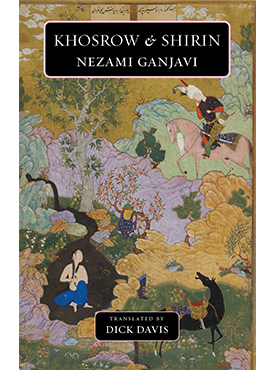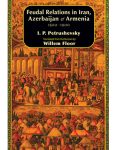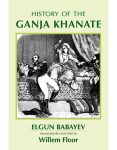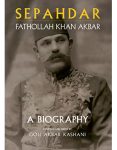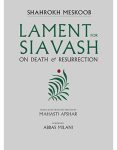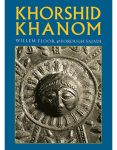About the Book
Khosrow and Shirin is a love story by Nezami Ganjavi—considered the greatest medieval Persian romance poet—based on historical characters of the seventh-century Iranian court. Written 850 years ago, the narrative poem is presented here for the first time in a stunning modern-verse English translation by Dick Davis, the pre-eminent translator of Persian poetry.
The love between an Iranian prince (Khosrow) and an Armenian princess (Shirin) is at the center of this tumultuous tale in which the exigencies of politics and warfare intertwine with no less powerful forces of erotic desire and the quest for personal and spiritual fulfilment. Nezami vividly dramatizes the clash between heroism and sensuality as they are pitted against the desire for the amenities of order and humane civilization. These marvelously presented discordant themes result in a complex love story based on conflicting concepts of love, one regarding the beloved as a prize to be conquered and possessed, the other unrequited and all-consuming, relishing the very notion of the annihilation of the self through love.
Davis has captured the energy and poetry of Nezami’s original in a delightful, contemporary idiom, and given us a story to read aloud, to savor, and to treasure for its luminous lyrical mastery. Davis’s superb introduction and textual commentary provide insightful background information for the general reader and scholar alike, intensifying the strength of his translation. Khosrow and Shirin will enchant both the classicist and the general reader, to captivate a new audience for Nezami’s masterpiece.
Excerpt from the Khosrow and Shirin
A Winter Entertainment in the Royal Tent
In winter a good fire is like a flower,
Healing the heart with its reviving power.
From hand to hand a flagon was passed round
Shaped like a rooster, with a fitting sound,
Since when the wine was poured it was though
Its gurgling reproduced a rooster’s crow
(Both francolins and partridges would feel
Envious of this fake bird, it seemed so real).
Piled platters were passed round, each one replete
With grilled kebabs of duck or partridge meat,
And citrons heaped by apples seemed to shine
Like golden bowls containing crimson wine;
Oranges, pomegranates, in collusion
Seemed magic harbingers of spring’s profusion,
Refreshing the world’s soul, and through the night
Wine was passed round until the dawn’s first light.
The harp’s silk strings told lovers’ tales that tore
The veils that had concealed their games before,
And songs of ancient heroes would inspire
Hearts made of stone with their enchanting fire;
A viol and shrill panpipes filled the tent
With sighing sounds of sorrow and lament.
A lute player sang next, to praise and bless,
And welcome pleasure, joy, and happiness:
“Life’s garden would be sweet if we could know
That autumn’s harshest winds will never blow,
Time’s castles could rejoice if we were sure
That they were built on rock forevermore;
The wind is cold, the castle is mere show,
You warm a place there and it says, ‘Now go!’
This earthen convent totters, so consign
Life to the wind, and fill your glass with wine.
Tomorrow, yesterday, are mysteries –
One’s gone for good, the other no one sees;
Today’s our cash in hand … who knows what might
Become of even that before the night?
Let laughter fill our mouths, and may our noise
Tonight be consecrated to life’s joys –
Forget sleep for tonight, the earth will keep
For endless nights a place for you to sleep.”
About the Translater
Dick Davis brings a unique array of gifts to the challenges of translating Hafez and his contemporaries. In his own right, he is a poet of great technical accomplishment and emotional depth. He is also the foremost English-speaking scholar of medieval Persian poetry now working in the West. Numerous honors testify to his talents. In the U.K., he received the Royal Society of Literature’s Heinemann Award for his second book of poems, Seeing the World, in 1981; his Selected Poems was chosen by both the Sunday Times and the Daily Telegraph as a Book of the Year in 1989; and his collection Belonging was selected as the Poetry Book of the Year by The Economist in 2003. In the U.S., A Kind of Love—the American edition of his Selected Poems—received the Ingram Merrill prize for “excellence in poetry” in 1993. He has received awards for his scholarship from the Arts Council of Great Britain, The British Institute of Persian Studies, and the Guggenheim Foundation, and he is the recipient of grants for his translations from the National Endowment for the Humanities and the National Endowment for the Arts. Twice, in 2000 and 2001, he received the Translation Award of the International Society for Iranian Studies, and in 2001 he received an Encyclopedia Iranica award for “services to Persian poetry.” His translation of Ferdowsi’s Shahnameh: the Persian Book of Kings was chosen as one of the “ten best books of 2006” by the Washington Post.
Reviews
From Publishers Weekly
Khosrow and Shirin
Nezami Ganjavi, trans. from the Persian by Dick Davis. Mage, $50 (520p) ISBN 978-1-949445-63-3
This moving and influential narrative love story by 12th-century Muslim poet Ganjavi draws on historical characters from the seventh-century Iranian court. In the work’s first modern-verse English translation, Davis (Hafez and the Poets of Shiraz) brings the story of Khosrow, an Iranian prince, and Shirin, an Armenian princess, to life through highly lyrical rhymed couplets that weave in contemporary language. The introduction provides valuable contextual information for both general and specialist readers: “But for all his innovativeness, Nezami had not turned his back on the literary tradition he inherited; rather he transformed the tradition by combining elements within it that had hitherto existed more or less separately.” We hear Davis’s excellent ear for and skill with rhyme throughout: “The shining sun rose, and the head of night/ Was severed from day’s body by its light./ The night was like a raven, and the sun/ Its golden egg now morning had begun,/ Leaving the darkness as it rose on high/ Beneath the parrot-colored morning sky.” The tale is rich with nature imagery: “In winter a good fire is like a flower,/ Healing the heart with its reviving power./ From hand to hand a flagon was passed round/ Shaped like a rooster, with a fitting sound.” Davis’s energetic rendering ensures that Nezami’s important contribution to Persian literature will be appreciated by wider audiences. (Jan.)
Link: http://www.publishersweekly.com/9781949445633
____________________
“Before Romeo and Juliet, there was Khosrow and Shirin. The medieval Persian epic ‘Khosrow and Shirin’ is a rich and gloriously excessive love story”—Michael Dirda, The Washington Post.
Review by Michael Dirda
Obstacles, prohibitions, uncertainties — these are essential to the blossoming and continuance of romantic love. They ensure that the imagination, rather than harsh experience, governs the erotic relationship: Unable to meet freely, the two lovers construct idealized versions of each other, to which they then offer their sighs, tears and hopes for happiness. Little wonder, then, that our most intensely romantic stories are largely about yearning rather than fulfillment: Think of Tristan and Isolde, Lancelot and Guinevere, Romeo and Juliet, Gatsby and Daisy, Leo Vincey and Ayesha (from H. Rider Haggard’s “She”).
To that list one should add the protagonists of two of medieval Persia’s greatest romantic epics, “Layla and Majnun” and “Khosrow and Shirin,” both by the poet Nezami Ganjavi (1141-1209). In the first, the lovers experience suffering and madness before transcending the bodily to achieve a spiritual union reminiscent of the Liebestod (“love-death”) in Wagner’s opera “Tristan und Isolde.” Famous all over the Middle East, “Layla and Majnun” has also enjoyed some currency in English: I first encountered it in a simplified 1915 abridgment gorgeously illustrated by Edmund Dulac. In 2020, this arch-romantic work was freshly translated by the poet Dick Davis, and this is now the version to read. After all, Davis firmly established himself as our leading translator from Persian with his stunning 2006 rendering of the “Shahnameh,” a sprawling historical epic analogous in importance and influence to Homer’s “Iliad.”
This year, and just in time for Valentine’s Day, Davis and his publisher, Mage (located here in Washington), have brought out Nezami’s other great romance, “Khosrow & Shirin,” which draws in part on episodes from the “Shahnameh.” Once again, Davis emulates the original’s rhyming couplets, this time to tell the story of the last great pre-Islamic king, Khosrow Parviz, and his passion for the beautiful but strong-minded, almost proto-feminist Shirin (pronounced shih-REEN). It’s a fascinating work that challenges and rewards the modern reader in equal measure.
First, by today’s narrative standards, Nezami’s style is slow-moving, baroque and flowery. Italo Calvino once compared its richness to the glorious excess of Shakespeare’s “Venus and Adonis.” While Davis’s English always remains clear, Nezami revels in litanies of similes and metaphors, many requiring interpretation. Almond blossoms, for example, represent pale cheeks; breasts are likened to pomegranates (very “Song of Songs”); and a handsome maiden is regularly compared to a cypress tree. Invaluable endnotes clarify the more obscure meanings.
Still, Nezami’s expressions, in Davis’s English, can be striking on their own, as in this playful description of nightfall: “Beneath night’s ebony backgammon board/ The shining dice of day were safely stored.” In the exquisiteness of his singing, Khosrow’s court musician “could compete with tipsy nightingales.” As for Shirin, she possesses “eyes like life’s dark water,” while “each finger is as slender as a pen/ That signs death warrants for a hundred men.” One lavish section about Shirin’s physical beauty and the pleasures it will someday afford a lover could be summed up in the self-description of Flaubert’s Queen of Sheba: “I am not a woman: I am a world!”
Second, Nezami is a moralist: He likes to give advice on how we should live. “Khosrow & Shirin” is packed with gnomic sayings, most often urging us to shun this mutable world, practice self-control and aspire to a more spiritual way of life. At times, one can even read the poem as an allegory of, and invitation to practice, a kind of Sufi mysticism:
Seek peace, then nothingness, and you will leave
This earth’s existence, where you’re forced to grieve —
Let the wind take your soul, forsake here, sever
Your ties to earth’s foul prison-house forever.
The world’s contemptible, and will desert you.
Third, and most interesting of all, Nezami’s hero and heroine aren’t at all the earthly paragons they’re said to be. King Khosrow is sybaritic, deceitful, boastful and often drunk, while Shirin doesn’t seem to know her own mind. When we first meet this niece of the ruler of Arman, she’s a bit spoiled and used to getting her way. Though she weeps and pines for Khosrow, and regularly seems ready to succumb to his imploring advances and his call to “seize the day,” a sense — a shrewd sense — of her own worth inevitably reasserts itself, and she sends him packing. Here’s Khosrow sounding a typical plea:
Come through this doorway into happiness
Where life consists of pleasure and success,
And let us live tonight, since who can know
What turns of Fate tomorrow’s dawn will show?
The king usually then adds how much he utterly adores Shirin, but she wisely puts no trust in his words:
But no, you simply want to have me handy
To sweet-talk when you’re drunk, to crunch like candy,
To get me careless drunk and have your fun,
Share this articleNo subscription required to readShare
A rose to sniff, and throw out when you’re done!
When the two first meet, Shirin appears more tough-minded than she really is, telling the youthful Khosrow, then living in exile, that “only when you’re crowned will you obtain/ The sought-for prize that you’re so keen to gain.” She insists on marriage, on becoming queen — not just another concubine. But when Khosrow does regain his kingdom, largely through the help of the emperor in Byzantium, he is required to wed that sovereign’s devout daughter Maryam, who, Nezami slyly adds, “made a Christian heaven of his life.” Not surprisingly, Khosrow is again soon yearning for Shirin.
She, in her turn, is suffering sleepless nights over him when not ravaged by jealousy:
What is my heart that I should care for it?
I’ve had no joy of it, no benefit.
At times Fate hurts us all, but I’ve no way
To halt this pain that’s here day after day;
Oh, I was happy once, but then I fell
From blissful days to days of endless hell.
How long must I hide all this ceaseless burning!
When shall I see the end of all this yearning?
Halfway through this long poem, Nezami introduces a stonemason, a gentle giant named Farhad, who grows so dazzled by Shirin that he wanders into the desert, forgets to eat and thinks of nothing but his adored and unattainable beloved. Medieval knights tended to behave this way too, for courtly love easily morphs into religious mysticism.
Compared with Farhad’s pure devotion, Khosrow keeps on living for pleasure, and once he hears about an apparently promiscuous beauty named Shekar, he can’t get her out of his mind. What follows is one of the most entertaining sections of the poem, an example of that universal folklore motif, the bed trick. After Shekar entertains Khosrow, she sends a maid, dressed to resemble her mistress, to spend the night with the blind-drunk king. In the morning, Shekar innocently settles beside the smug Khosrow, who asks if she’s ever encountered any lover as virile as he is:
She said, “Oh, you’re the best, I swear it’s true,
I’ve never seen another man like you!”
But then she adds the kicker:
T
here is one tiny fault we might regret —
Your breath smells dreadful; please don’t be upset!
As the poem progresses, Nezami sets up multiple situations in which the two lovers argue about their feelings for each other. When an intoxicated Khosrow tries to make his way into Shirin’s castle, she staunchly keeps the gates locked and guarded, even though it’s snowing. Nonetheless, when the time is finally right, Shirin overcomes her pride and sexual reticence, so that she can murmur to her beloved: “Make me the wine you drink tonight.”
As for Khosrow himself, he gradually comes to realize that “I’ve spent my days/ Searching for useless things in useless ways!” Through Shirin’s civilizing love, the self-indulgent king slowly progresses from a pointless life to a spiritually meaningful and selfless one. In the end, not even death will separate Khosrow and Shirin.
By Michael Dirda
Michael Dirda is a Pulitzer Prize-winning columnist for The Washington Post Book World and the author of the memoir “An Open Book” and of four collections of essays: “Readings,” “Bound to Please,” “Book by Book” and “Classics for Pleasure.”

